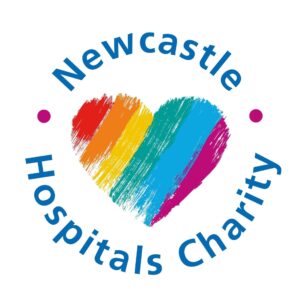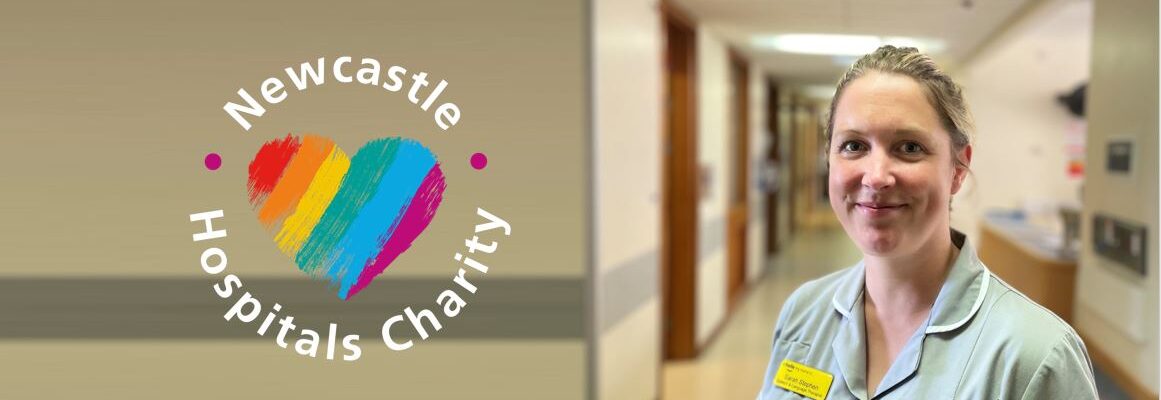One of Newcastle’s first NMAHP Researcher Development Institute Fellows, Sarah Stephen will carry out a Doctoral Fellowship with the support of the Trust’s NMAHP Research Team.
Sarah – a speech and language therapist at Newcastle’s Freeman Hospital – will carry out research to explore how transoral surgery affects swallowing and communication in the first six weeks following surgery for cancer of the oropharynx (part of the throat directly behind the mouth that helps you speak and swallow).
Sarah explains: ”Oropharyngeal cancer treatment can result in a devastating impact on patients’ ability to communicate and swallow, with serious medical and psychosocial effects on the everyday lives of survivors.
“The burden of disease does not lie solely with the patient, with associated significant economic and healthcare burden. The aim of my research is to improve treatment decision-making processes, making healthcare more effective and economically efficient.”
The Newcastle Hospitals is a pioneering centre for transoral surgery advances and was the first in the UK to introduce Transoral Robotic Surgery (TORS) UK in 2013. Sarah hopes that her high impact research will maintain the Trust’s reputation as a leading centre of excellence in this field.

Sarah’s Fellowship has been made possible thanks to Newcastle’s RDI funding backed by the Newcastle Hospitals Charity, which will backfill 57% of Sarah’s clinical role, allowing for dedicated sessions to engage with PPIE and complete her research.
The Fellowship will also contribute costs for Sarah’s ongoing training and development, allowing her to improve her capacity and capability to deliver research.
Aims of Sarah’s research
Sarah’s research will provide:
- In depth analysis of changes to function helping clinicians to understand which patients benefit functionally from transoral surgery facilitating the complex treatment decision-making process.
- Evidence on the impact of surgical techniques (transoral laser microsurgery vs transoral robotic surgery) which will guide policy and clinical decision making
- Greater understanding of functional changes which will improve pre-treatment education, thus reducing anxiety for both patients and carers during the post-operative period.
- Qualitative data to provide a greater understanding of oropharyngeal dysfunction, highlight the timing and nature of functional problems and inform resource allocation, optimise care pathways and efficient clinical management.
The future looks bright
I aspire to deliver holistic research entrenched in ‘real world’ clinical issues, making an impact on patients’ lives and the wider population.
Sarah adds: “Newcastle Hospital recognises the importance of strong partnership and collaboration within research. The research will be conducted in part with The University of Liverpool, where I will have access to the Liverpool Head and Neck Centre, who are leading one of the largest trial programmes in Europe for Head and Neck Cancer.
“They are fostering partnerships across the North of England, with the development of the Northern Head and Neck Alliance. By registering at The University of Liverpool, I hope to harness partnerships to collectively produce leading research that is powerful, innovative and impactful.
“I believe I am ideally placed to deliver on this research which will build on Newcastle’s legacy, maintaining our Trust’s innovative reputation globally as a leading centre of excellence within the field. My goal is to collaborate with international institutes to achieve global reach.”
Diane Sellstrom is the Lead Speech and Language Therapist for ENT specialising in head and neck oncology at Newcastle’s Freeman Hospital and said she was delighted to hear about Sarah’s success.
“Sarah has worked incredibly hard on improving our understanding of the functional impact of this surgery. She has already contributed to the evidence base, gaining a national reputation as a leading speech and language therapist in this field.
“This fellowship is a natural progression to her research endeavours to date and I have every confidence she will deliver an invaluable body of work that will have far-reaching impact for clinicians working in head and neck cancer and ultimately their patients”
Could you be one of our next NMAHP RDI Fellows?
If you would like to find out more about becoming one of our NMAHP RDI Fellows, you can go to our Researcher Development Institute webpage.
Watch our NMAHP RDI video
Our animation explains how Newcastle’s NMAHP Researcher Development Institute programme works across the four seasons of the year.
Contact us
Email the NMAHPs Research Team at [email protected]
